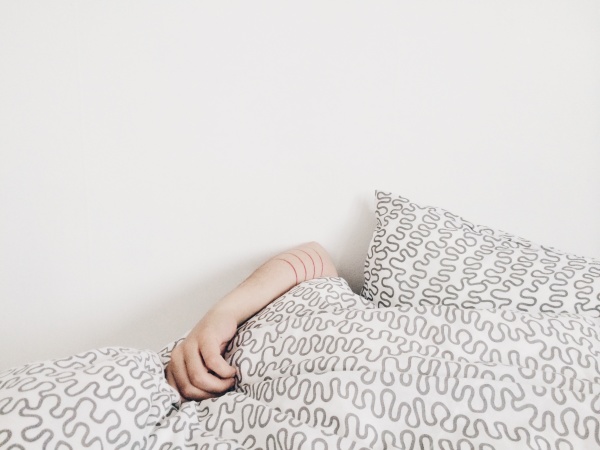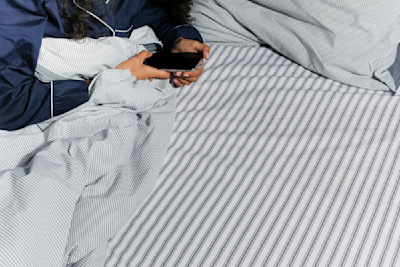
How Daylight-Saving Time Affects Your Sleep and Health
Daylight-saving time is a practice that many countries observe by advancing their clocks by one hour during the spring and summer months. This is done in order to make better use of daylight hours. While the idea is to make things more efficient, there are some drawbacks to this time change. One of the biggest impacts of daylight-saving time is on sleep.
Daylight Saving Time (DST) occurs twice a year and causes many people to experience disruptions in their sleep patterns. DST can affect our circadian rhythms, or internal clocks, by shifting an hour of daylight from the morning to the evening, or from evening to the morning. This change can disrupt our natural sleep patterns and lead to insomnia, fatigue, and other health problems. Though DST is intended to save energy, it may actually have negative consequences for our health. Sleep deprivation has been linked with obesity, diabetes, heart disease, depression, anxiety disorders— even car accidents! To avoid these risks associated with DST, it's important to practice healthy sleep habits or "sleep hygiene." Tips for good sleep hygiene include: maintaining a regular sleep schedule; avoiding caffeine late in the day; keeping a cool , dark ,and quiet bedroom environment ;and exercising regularly during daylight hours . Practicing good sleep hygiene can help offset some of the effects of Daylight Saving Time on your body's natural clock
Fall back or spring forward?
While daylight-saving time may have some benefits, such as reducing energy use, it also has some drawbacks, including its impact on sleep and health.
There are a few things to consider when it comes to how daylight-saving time affects sleep. The first is that when the clocks are moved forward or back, it can throw off people’s natural sleep rhythm. This is because the body’s internal clock, which is also known as the circadian rhythm, is synced to the natural light-dark cycle. When the clocks are moved forward, this rhythm is disrupted.
This can lead to a number of problems, including difficulty falling asleep, difficulty staying asleep, and feeling tired throughout the day. In fact, a study from the University of Colorado found that the average person’s sleep duration was reduced by about one hour following the time change.[1]
There are a few things people can do to help adjust to the time change. One is to go to bed and wake up at the same time each day, even on the weekends. This will help to re-sync the body’s internal clock. Another is to avoid using electronic devices before bed, as the blue light from these devices can disrupt sleep.
Daylight-saving time can also have an impact on people’s health. One study from the University of Alabama at Birmingham found that heart attack rates increased by about six percent in the week following the time change. This is thought to be due to the fact that when the clocks are moved forward, there is a loss of an hour of sleep.[2]
This can lead to fatigue and stress, which can increase the risk of a heart attack. Other health problems that can be affected by daylight-saving time include diabetes, obesity, and depression.
Once daylight-saving time begins, people often have a harder time falling asleep and staying asleep. This is because the body's natural clock is now an hour ahead or an hour behind. This can lead to fatigue, irritability, and even depression.
On the plus side, in early spring, daylight-saving time can be beneficial for our health. It can help us get more exercise, as we're more likely to be active during daylight hours. Additionally, daylight-saving time can help to reduce traffic accidents, as there is more daylight to see.
What can we do?
There are ways to adjust to daylight-saving time and minimize its impact on your sleep and health. One is to gradually adjust your body to the time change in the weeks leading up to it. Another is to make sure you get enough sleep before the time changes, and to avoid caffeine and alcohol in the hours leading up to bed. Finally, try to stick to a regular sleep schedule once daylight-saving time begins or ends.
Bottom line: Prioritize your sleep, especially during the weeks leading up to DST
Start by preparing for the time change a few days in advance. This will help your body to adjust more easily.
Get plenty of sleep in the days leading up to the time change. This will help you to feel rested and less fatigued when daylight-saving time begins.
If possible, on the day of DST, take it easy and avoid strenuous activity if possible. You may find that you're feeling groggy or irritable due to the loss of an hour of sleep, so it's important to give yourself some extra TLC.
Make sure to get exposure to natural light during daylight hours. This will help suppress melatonin production and can make you feel more alert during these times.
Go to bed and wake up at the same time each day, even on the weekends. This will help to get your body adjusted to the new schedule.
Your internal clock, or circadian rhythm, is what tells your body when it's time to sleep and wake up. When you travel across time zones or experience daylight savings time, it can throw off your natural sleep patterns.
However, if you prepare accordingly, there are a things you can do to help get your circadian rhythm back on track.
If you’d like to read more about topics connected to this subject, please check out our Sleep Better page or some of our other articles published on our blog:
You might also like to join our FORUM Community where we discuss ideas and exchange information about all things connected to wellness and overall health & well-being
Related stories

The Digital Detox Guide for Better Sleep
Struggling with poor sleep? Discover how a digital detox can improve sleep quality, support better sleep hygiene, and help you sleep better naturally.

Why Mindful Tech Use Matters for Your Work-Life Balance
Reclaim work-life balance through mindful tech use and learn practical strategies to reduce digital overload & set boundaries with Mudita's minimalist approach.

The Sleep Hygiene Checklist for a Restful and Rejuvenating Year
Improve your sleep quality with a sleep hygiene checklist! Discover tips for better sleep, a healthy bedtime routine & how Mudita alarm clocks can help.
If you'd like to receive the best stories from our blog, keep up to date with our progress and get notified about our product releases and special discounts.